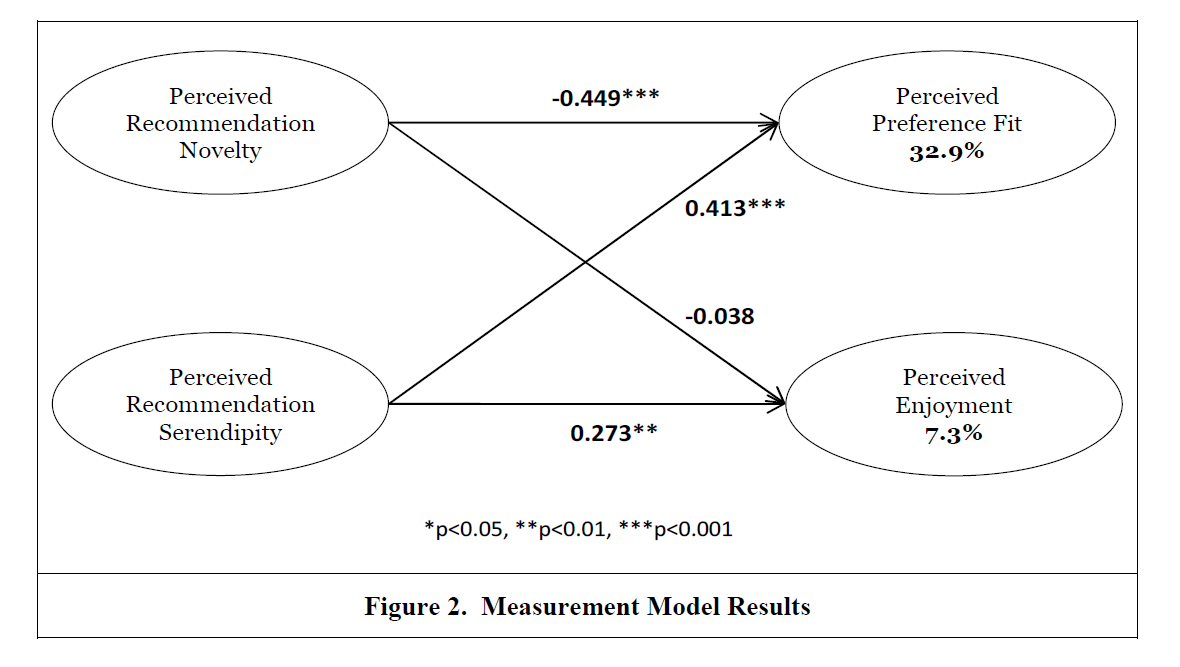Product recommendations have enabled E-commerce websites to become a place where mass marketing converges with niche marketing. Recommendations are pivotal in enabling less popular products to be discovered by people who are the most likely to like them : this is a long-tail strategy.
There is however a dilemma to be adressed : how much of novel and unexpected products should be recommended to online visitors to enhance their satisfaction? This is the purpose of today’s article where we’ll discuss concepts like novelty, serendipity and of course customer satisfaction.
Recommendation : the trade-off between novelty and accuracy
Most advances in improving recommendation algortihms have resulted in efforts to enhance their accuracy. For e-commerce websites this accuracy is measured in terms of sales increase.
However accuracy doesn’t necessarily mean “relevance” in the had of the customer. Receiving very accurate recommendations (i.e. matching exactly preferences) comes indeed at a cost : missing opportunities which are outside of one’s narrow scope of preferences.
Customer satisfaction : how novelty can lead to an increase
From a customer satisfaction perspective it is unlikely that accuracy will decrease satisfaction. The reason is simple. You don’t know which opportunities you are missing (the algorithms is not transparent to allow you to do that), hence you can’t form expectations and your satisfaction will consequently not decrease.
However customer satisfaction can be greatly increased if a customer is exposed to a novel, unexpected, product recommendation. That’s the power of serendipity.
What is serendipity ?
Serendipity is defined as “The faculty of making happy and unexpected discoveries by accident” (Foster and Ford, 2003).
There are two important words in this definition : “happy” and “unexpected”. If you go back to the very definition of customer satisfaction (see for instance the seminal book by Oliver, 2009) you understand how much of an effect serendipity can have on customer satisfaction.
Empirical research of satisfaction, novelty and serendipity
An interesting piece of research by Matt et al. (2014) proposes a model to measure the effects of novelty and serendipity on consumers. This research was conducted in the context of music recommendations. It shows that proposing mere novel songs (i.e. songs that the user is not familiar with) leads to a decrease of perceived preference fit. However when you add the happiness and unexpectancy factors, what you obtain is radically different. Suddenly perceived preference fit and perceived enjoyment increase (see results below).
Conclusion
Recommendation engines are an untapped source of customer satisfaction for online marketers. However, most recommendation engines are bought “out of the shelves” and are conceived to focus on accuracy. Including serendipity as an additional constraint in algorithm may allow to reach a new level. This may prove especially effective for inspirationnal brands and retailers.
If your brand focuses on customer experience and inspiration, make sure you get in touch with us to learn more about how to tweak algorithms with a touch of serendipity.
Posted in big data, Marketing, Research.
